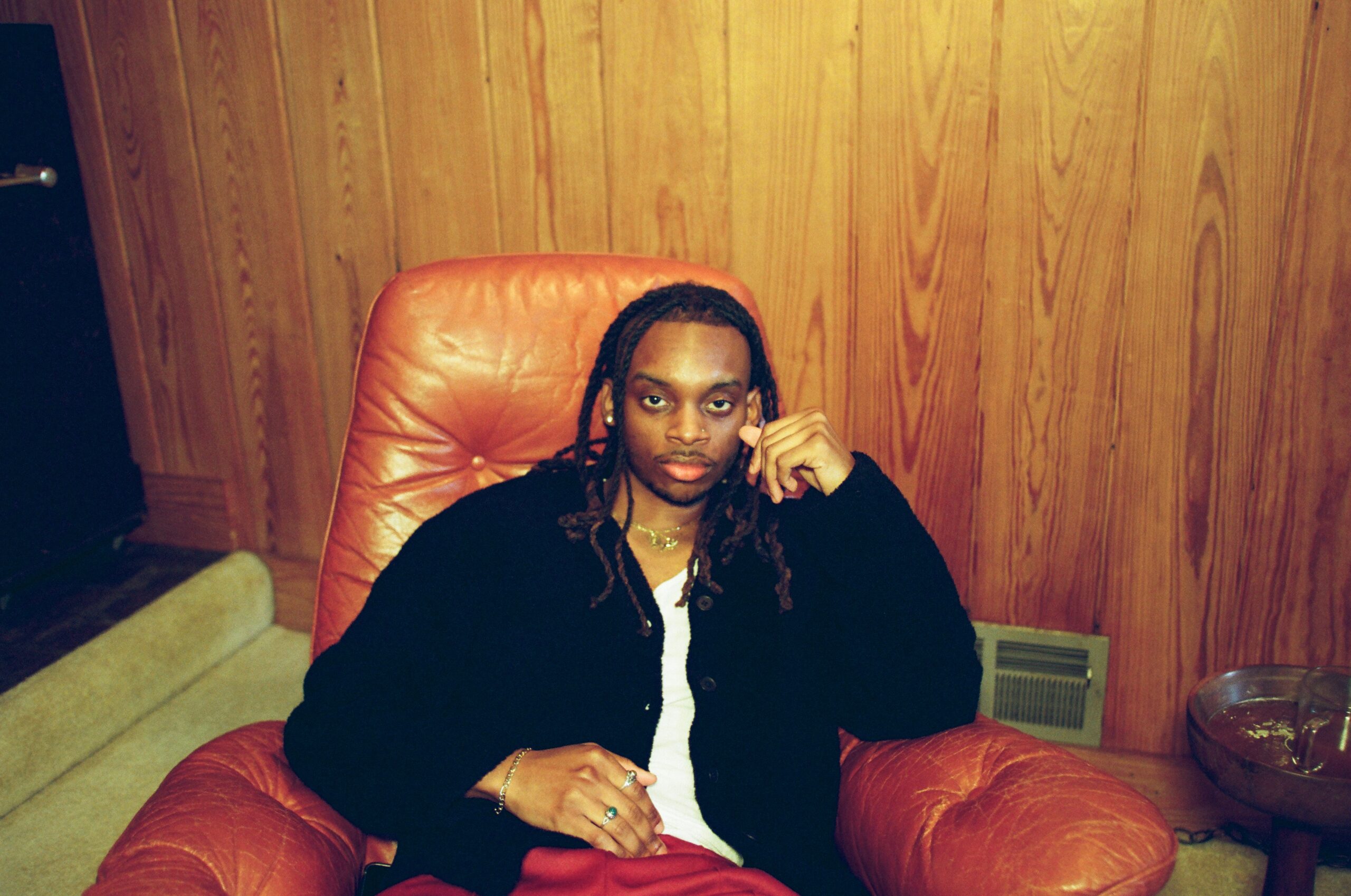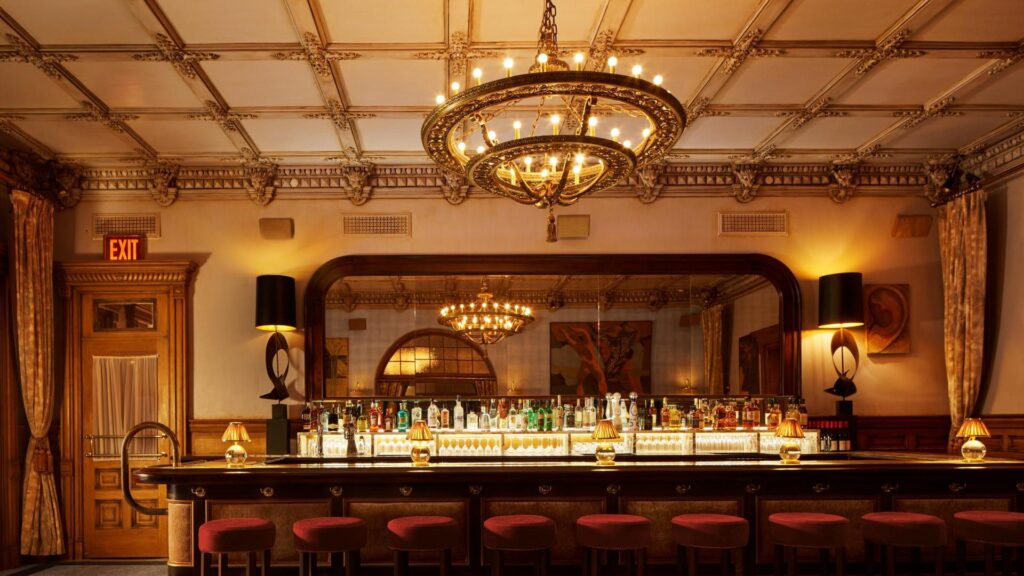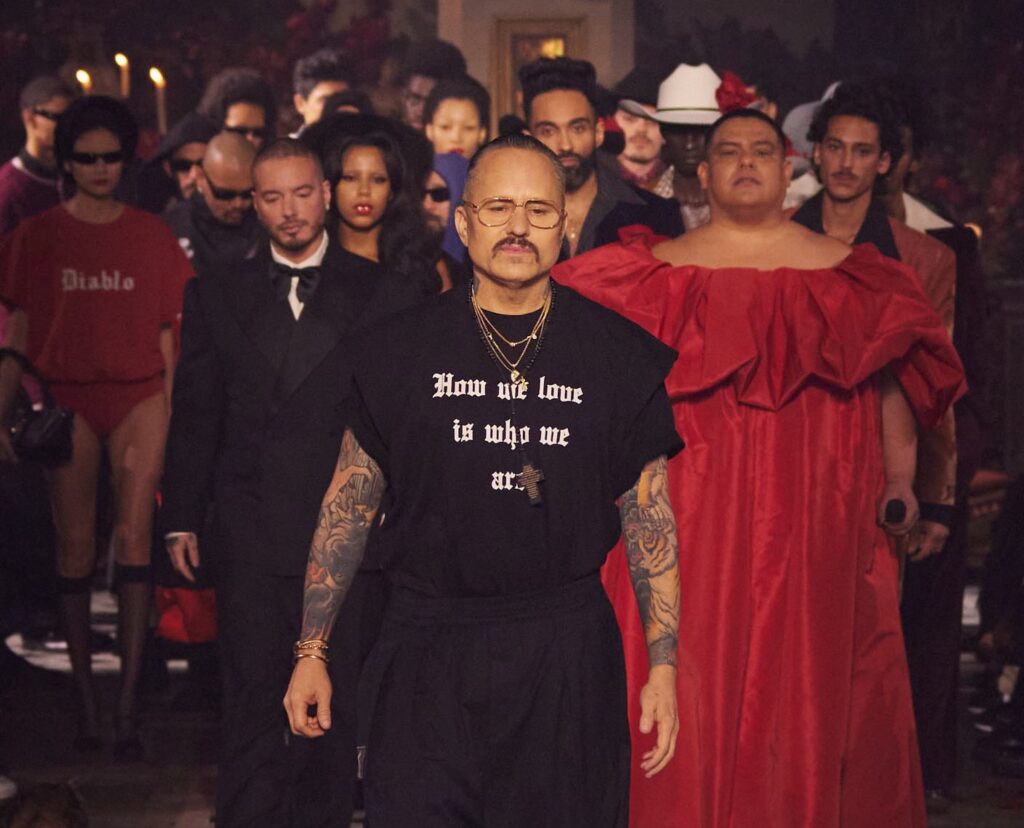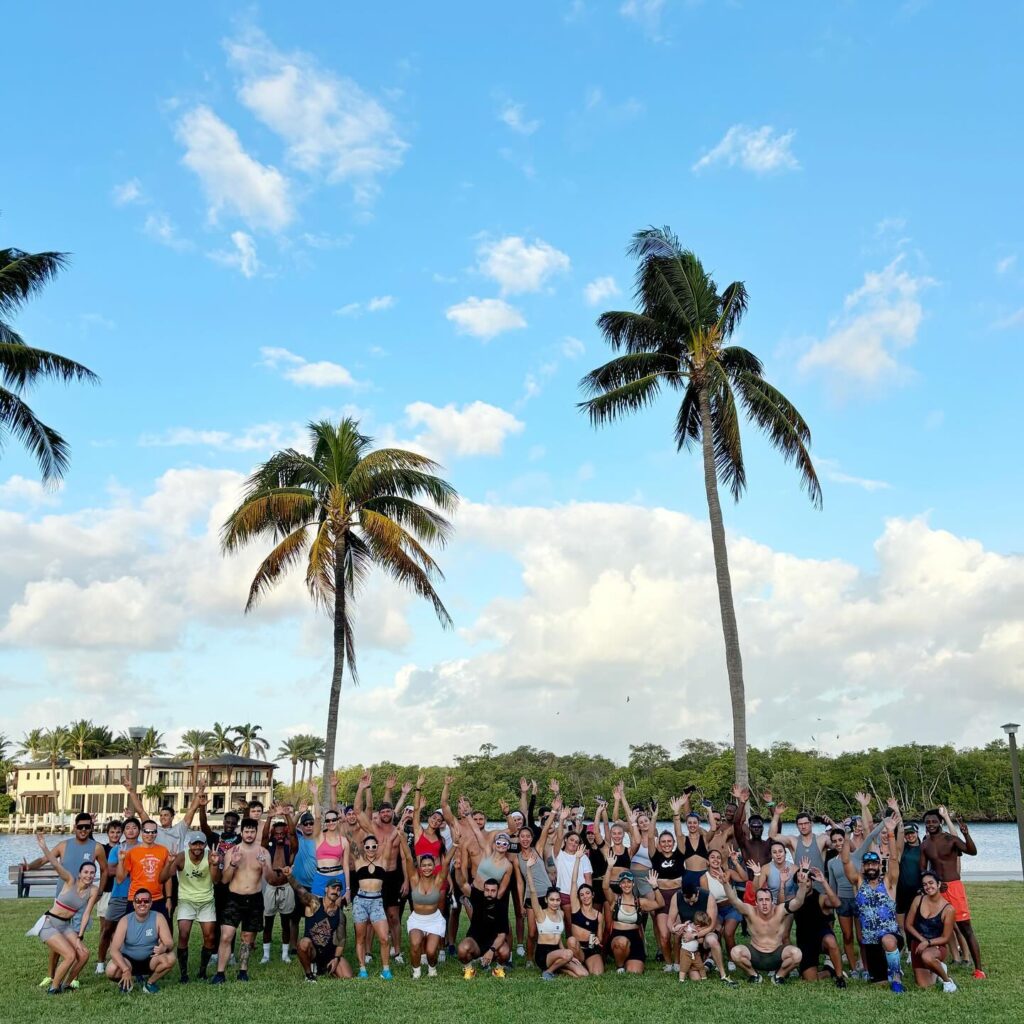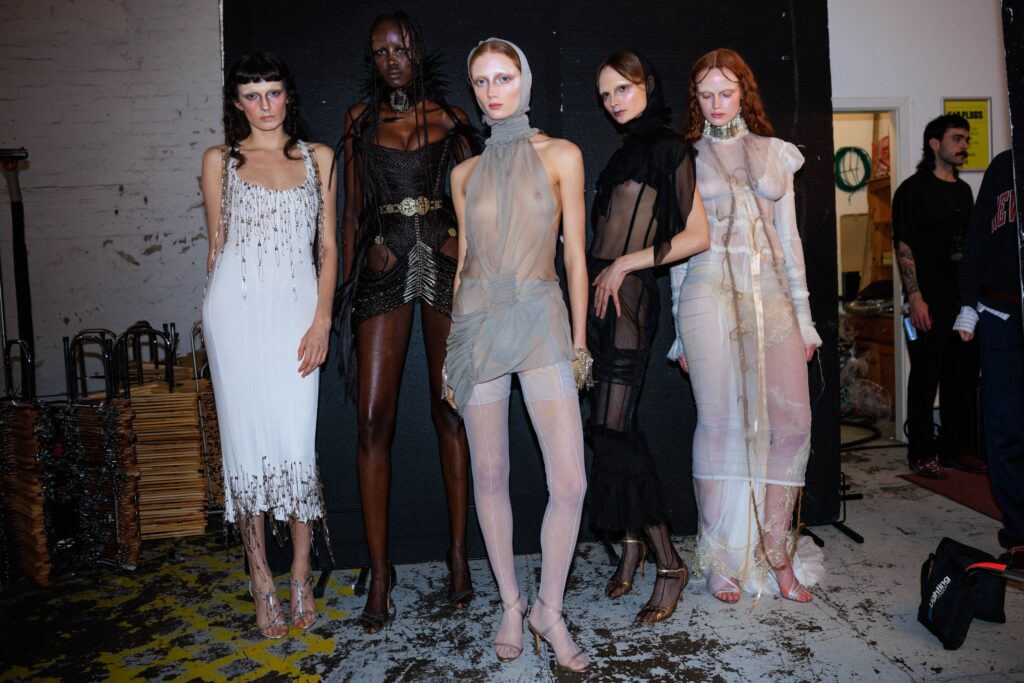It’s a chilly November afternoon in Brooklyn and Flwr Chyld is easily the coolest person I’ve seen all day. The artist, who I’m meeting at Botani in Bed-Stuy, rounds the corner in a simple fit: black pants, a denim jacket and a red hat with his locs pulled back. The look is cool without trying too hard – and though he’s just arrived, he’s already turned a couple of heads. Flwr Chyld’s style, like his music, is inspired in part by New York City. “I tell people New York got me together” he says. “I had all these really cool ideas and things starting to happen in my career. But all the other things that I was interested in, like fashion, I didn’t have a stronghold on. Being here, you get to explore so much.”
The 27-year-old artist isn’t a stranger to inspiration. He tells me he loves to people watch, “That’s how my style started to evolve, and I started to learn what looks good on me, just by taking bits and pieces. It’s like making music — you’re getting influenced by all these other musicians that you love. It’s the same way with any art form in my opinion.”
Flwr Chyld has been at this a few years now, but 2024 may have been the best of his career. The alternative R&B artist put out an EP earlier this year titled Café Noir. He’s curating community in New York City with a third space by the same name. His music was featured in a Viarae Wines commercial, and he’s dabbling in the music scoring business. On top of it all, the artist had, arguably, one of Soulection‘s best takeovers this year. When asked about his career progression, he says “I’m just grateful for the look and opportunity, and to just keep going.”
In our conversation, Flwr Chyld walks me through the process of making Café Noir, the Soulection takeover he did this year and why New York has made all the difference in his career.
Tell me a little bit about you. You grew up in Atlanta, now you live in New York. Let’s just talk a bit about your time in both cities — what prompted your move?
I was born in South Carolina, and I spent the first six, seven years of my life there. My family moved to Atlanta, and that’s where the majority of my formative years were spent. I went to college there, and really came into my own as a young adult in Atlanta. That’s home, that’s what I’m most familiar with.
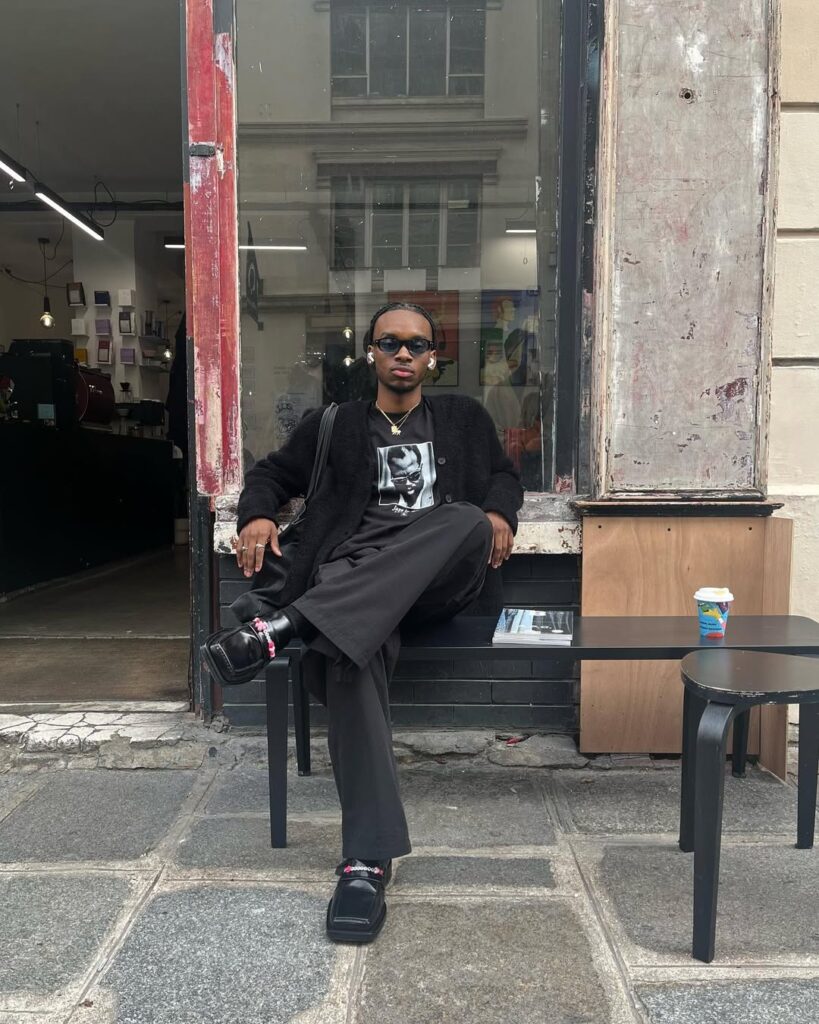
I started making music when I was 11-years-old. I did it through school and decided I wanted to become a musician in college. The pandemic happened six months from graduating, and I don’t want to say me becoming a full-time musician was premature, but when the world stops, you don’t really have anything else to do. A year and a half goes by and I’m still in Atlanta, it’s 2021. I wanted to move to New York for six months and just see what happens. I ended up staying for eight and signed my publishing deal with Raedio Publishing, which is a division of Issa Rae’s media company.
Ever since then, things just continued to take off for me. I wouldn’t say New York itself did it, because I put in a lot of work. People were like, “Oh, you moved to New York and all these things happened.” No, these were the seeds that were already planted. I didn’t move to New York and all this started happening.
I will say, being here opened things up in terms of my overall creativity. Obviously, I have my roots down south, and they played a really big role in the makeup of who I am as an individual. New York just kind of helped add on to who I am in all facets of my creativity, whether it be music, fashion, art, all of those things.
What does that creative process look like for you? When you tell yourself you’re going to make a song, what’s your starting point?
Lately, it’s not as calculated as it used to be. I just kind of let the creativity hit me however it needs to, I don’t force ideas anymore. It used to be calculated in the sense that I’d say, “Okay, today I’m gonna make music. I’m gonna start with the drums, and then I’m gonna move on to a chord progression and figure things out from there.”
Nowadays, I may not be in the creative spirit to make music, because I’m relaxing, right? But if I hear a song on my walk back home I’m like, “Oh shit, I haven’t heard anything like this in eight months.” Something might spark there and I don’t know, it just happens. I might end up in the studio next week trying to track live drums for it. That’s how my current album, the album I’m going to release next year, has been coming together. Just spur of the moment ideas. I’ve kind of taken a back seat and let whatever needs to happen with my creativity, happen, and not put so much thought into it.
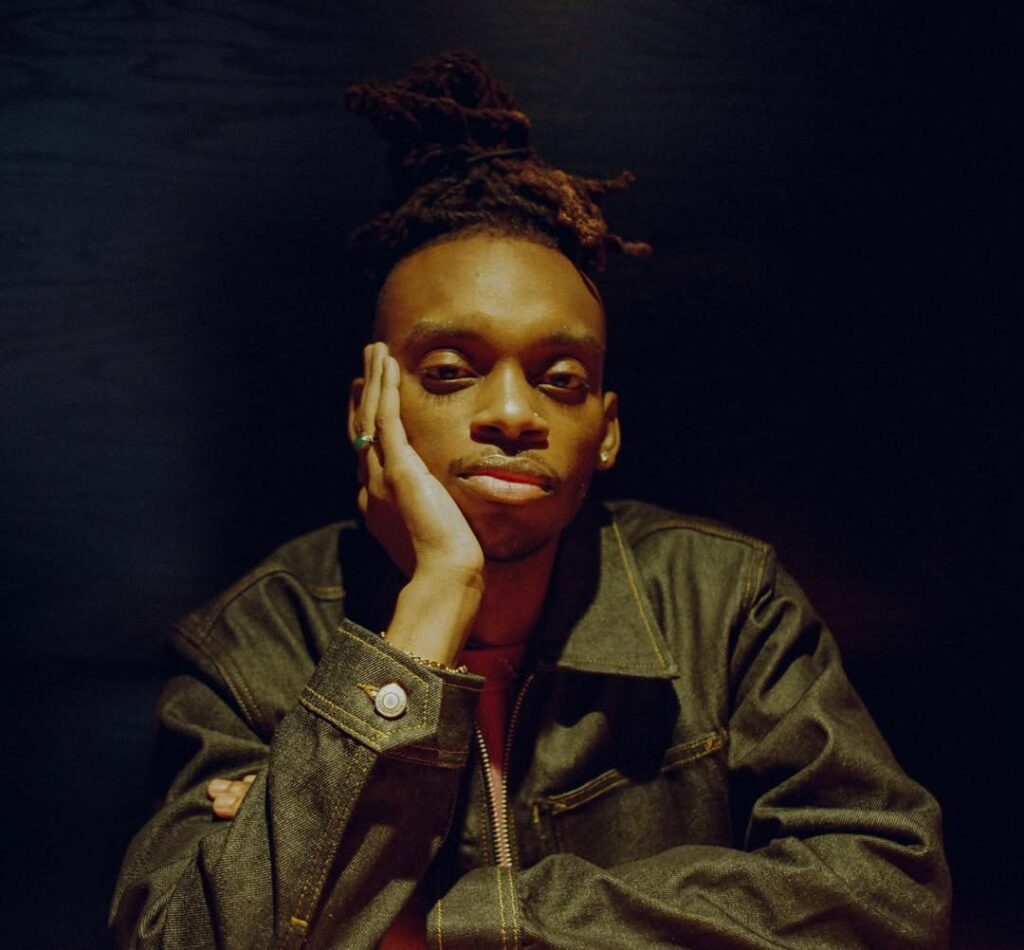
Are there any moments or themes from childhood that influence your music today?
Yeah, my grandmother was a big catalyst for my creativity as a whole. One thing she always did was push me to do things artistically. I started off drawing and painting when I was younger and I thought that’s what I wanted to do, and then I stumbled upon music. I just had a really great support system from her and my father who’s also a music educator. It was almost meant to happen in a sense. I’ve always been creative.
They saw it within me when I was four or five years old beating on random drums in the house. When I would hear company come over downstairs, I would never go downstairs, but I would always make my presence known, like, I’m beating on this drum right now. I’ve come across pictures from when I was three holding a saxophone – I don’t even remember these things. Music is something thats more innate than anything. I’m realizing now, they were just pushing me to do what I love or the things that came naturally to me. So I would say all of those moments from childhood had a big influence on the man I am today as an individual, but also as a musician and creative.
What was your biggest challenge for you tapping into the alternative R&B space? Is thinking outside the box when it comes to R&B natural for you, or was it muscle that you had to learn how to flex?
Thinking outside of the box has always come naturally to me, and therefore, the music comes out differently because of it. It all came naturally based on the music I grew up listening to. My parents had me when they were 18. I came up on the music they came up on. This was during the late 90s, early 2000s. It was the golden era of neo soul. One album that I hold near and dear to my heart and I listen to, at least weekly, is Mama’s Gun by Erykah Badu. That kind of sparked my interest. I’d be thinking, “All right, I’m hearing the blending of all these different things happening right now. I know the root of it is jazz and R&B, but what is this other element that’s happening musically?”
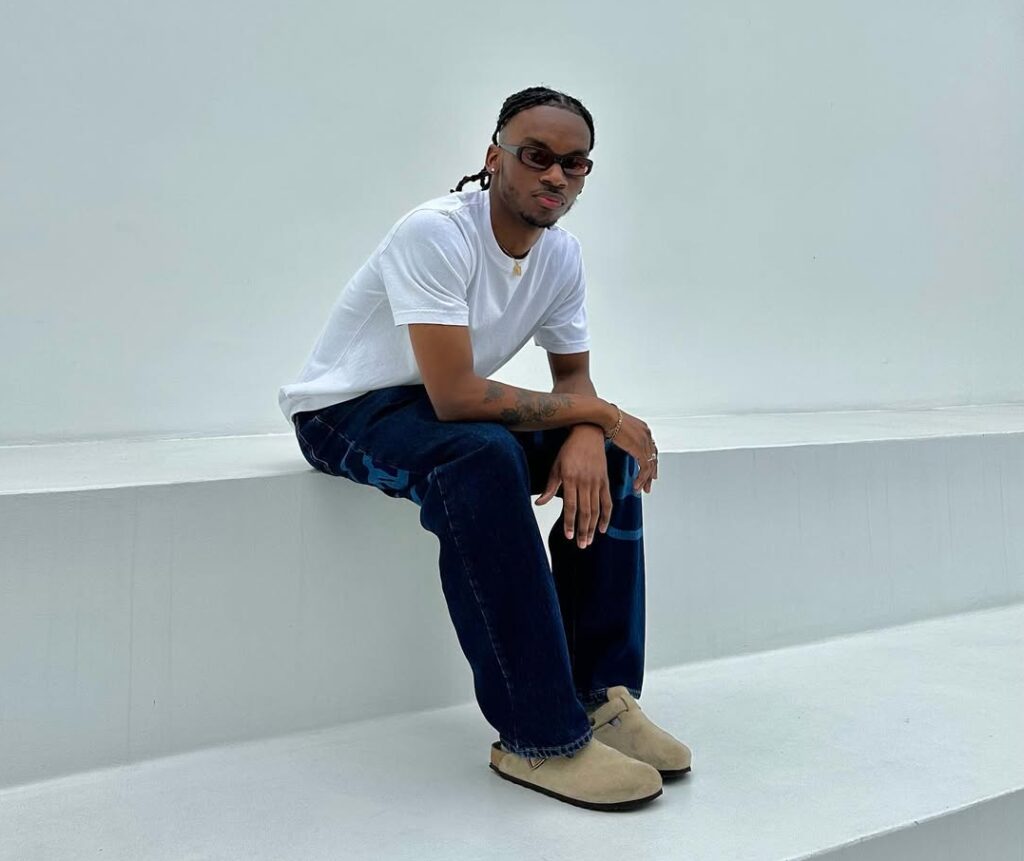
You realize all of this is late 60s and early 70s influenced, Afro Cuban and Afro Brazilian rhythmic fields. And then that leads from one rabbit hole to another. I’m learning and researching this music that I love. I’m being pulled towards it, and that’s how I was able to figure out my own sound.
I can’t say that anything was challenging about that, because I’m just doing what feels good to me at the end of the day. I don’t really face many challenges in terms of the things that I want to make. For me, where I’m at with my sound now, I feel like I have a sound but it continues to evolve over the years. Sometimes quarter to quarter, depending on what I’m listening to. Because of all of those sounds and influences, it comes out as alternative R&B, but it has roots in jazz and soul.
You released your latest project Café Noir with Grimm Lynn earlier this year. Walk me through what the process was like for you creating the album.
That was probably one of the most difficult projects to put together. All of my other projects feature multiple vocalists, so you kind of take a back seat and give them the freedom to do what they want to do. When you’re working with someone that’s like family, your best friend or your brother, it presents a different set of unique challenges. When we’re working on our solo projects, it’s like, “Bro, this is what I need from you” and vice versa. It’s easy to just knock it out. I’m not coming in saying, “Yo, you should maybe think about this differently”, because it’s not my project, it’s not my vision, I’m just coming in and doing what you need me to do.
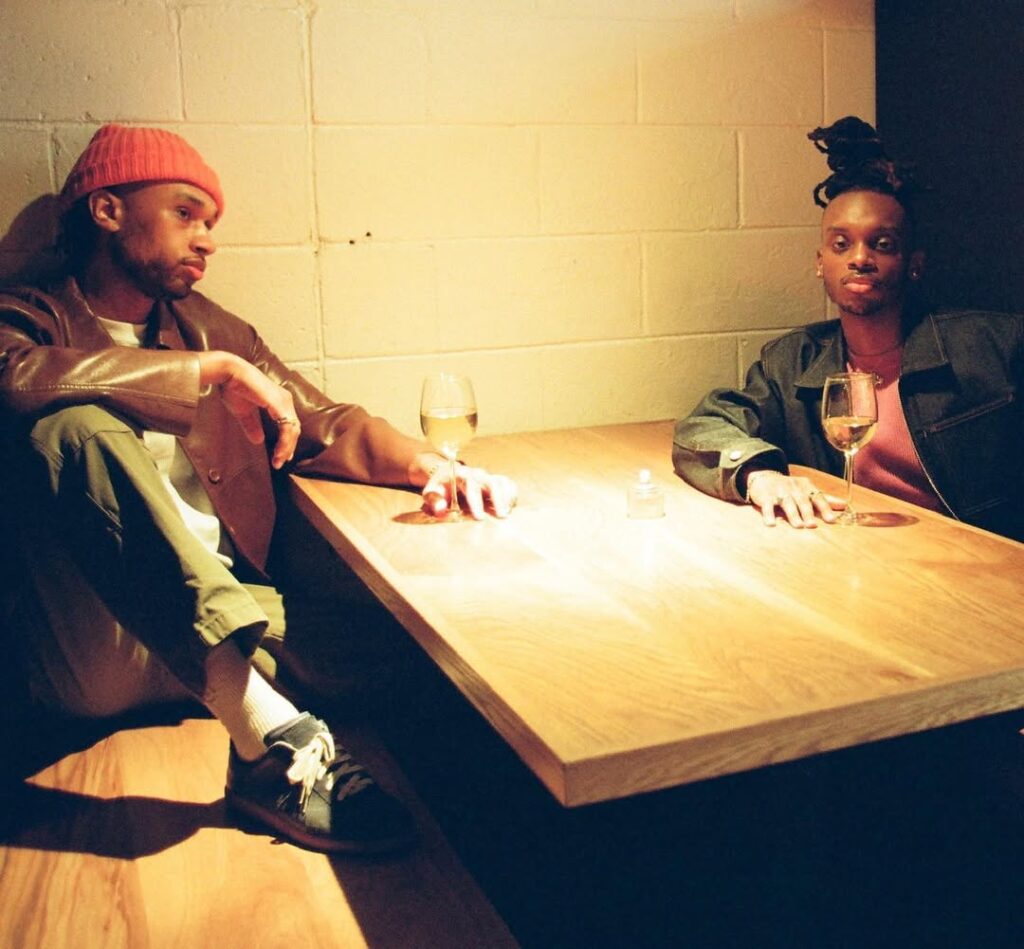
But when you come together, I learned that while we’re both really, really opinionated, and we care so much, it takes a lot more time, effort and energy to really see this thing through all the way, and push each other because we care so much.
There were a lot of times there were really small details that we couldn’t come to common ground on, and we had to figure out new and creative ways to both get what we wanted. But it also came with a lot of compromise, because we know each other so well and that’s family. We care so deeply about this thing, we want to see it go really far. It’s unlike any other project I’ve ever created.
Would you say it’s one of the projects that you’re most proud of or most happy with?
For sure, I think it’s some of my best work production wise, because I was able to flex a lot of different muscles. Versus working on my own solo stuff where I’m featuring multiple vocalists. Not to say I’m tailoring [my work] to their vocal style or texture, but working with one person, you could just do one thing. I wanted to really challenge myself and say, “Okay, people know y’all for this specific sound because you have worked together. How can you make it even more dynamic and show your improvements as a producer and a co-writer? How can he flex his talent in a different way, vocally, and through writing as well?”
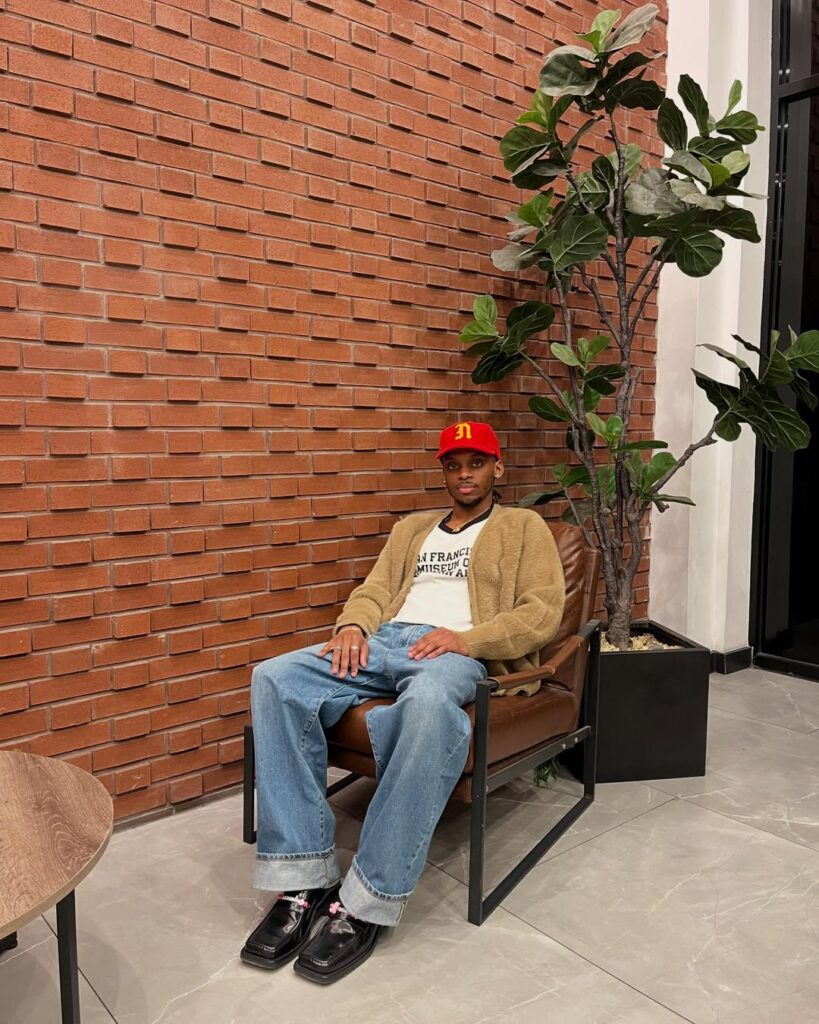
Do you see yourself doing other collaborative projects in the future?
For sure. I’ve done a lot of work with my homie Sebastian Mikael, where I’ve done the vocal production for one EP that he released. But again, it’s a little different because it’s for his project, and we ultimately want to take it where he wants to go. There’s another artist by the name of Mack Keane that I really love. He’s super incredible, we’ve worked on a ton of songs together. I can see those two individuals being part of a collaborative effort down the line. We’ll see. Music can be very complicated sometimes, because everyone has their own unique situation going on, including myself. It’s just about being patient more than anything, and I think those things will happen.
Speaking of Café Noir, you also curate a third space with the same name in Brooklyn. What was the inspiration behind creating that third space?
That was the basis of the project. We wanted to turn the sonic soundscape into a physical space. You hear all the sound design with the elevators opening. At the top of the project, you hear a car door shut, you hear footsteps going to the party, and it takes you into the space. At the very end of the project, you hear keys jingling. We wanted those worlds to blend, where we’re taking you from the sonic landscape to the physical landscape by way of music and sound design.
We were reminiscing on late college days going into the pandemic, we’re coming into our own as young adults. You’re getting an opportunity to experience nightlife in Atlanta. We just wanted to tell a story of nostalgia for ourselves, but also wishing there were more third spaces for black people like us, who like to indulge in the finer things in life. A safe space where you can play music from all parts of the black diaspora, but more importantly, just a safe space by us, for us. Where we can all come together and just leave whatever at the door.
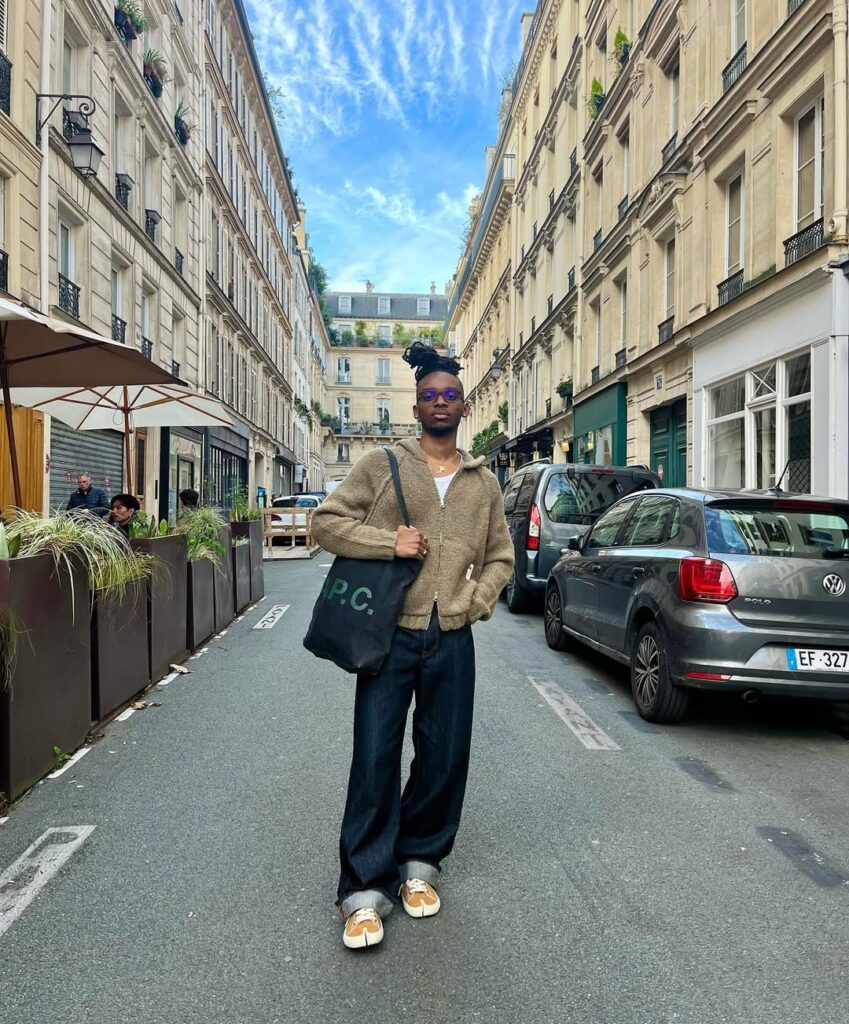
That was the goal with the project, and ultimately we were just like, “All right, let’s see how we can make this into an actual third space.” We saw how well the release party went and it was like, damn, this is the world of Café Noir.
Grimm Lynn was like, “Yo, we both want this project to be black as fuck.” We’ve always dreamed of opening up a third space that is for us. We tried to create this entire world around it.
Are you planning others?
Yeah, I think the current spot that we’re at works, but with any venue you run into different hurdles with what you’re trying to accomplish with the vision. We don’t believe in rushing things, we want to do it the right way. We don’t want to just do things because the demand is there. The timing will happen when it needs to happen. We also want to be calculated with it, so each time you go to Café Noir it’s the same experience, but it feels different every time. We’re thinking about maybe taking the party to different cities. The demand is there, so we’re just taking a step back and seeing where else we can take it and feel like it would be successful.
Do you think that spending time in third spaces is essential to your creative process?
Absolutely – more than ever these days. We’re at this coffee shop, and I have a good relationship with the owner. Knowing who he is and understanding his vision for this space, it makes me feel like this is my third space away from home. I know staff members’ names.
And they know your name. They literally said hi to you.
Yeah, I like to go to spaces like this where I can people watch and meet like-minded individuals who have similar interests. You never know where a conversation may lead. It may not go anywhere in terms of it being transactional, because I don’t like those kind of conversations. But you may leave that conversation feeling inspired, you know? It may not have anything to do with your music making process, but it can affect you in other ways. It can put you in a really positive mood, or maybe shift your perspective on something.
I feel like more than ever, living life contributes to my overall creativity. That’s why I told you I don’t like to force anything anymore. I find that those moments that kind of catch you off guard, the ones that you don’t plan for are the ones that have affected me in the best way in terms of what I’ve been creating recently. It is easily my best work to date, and I can’t wait for people to hear it when it’s time to release it.
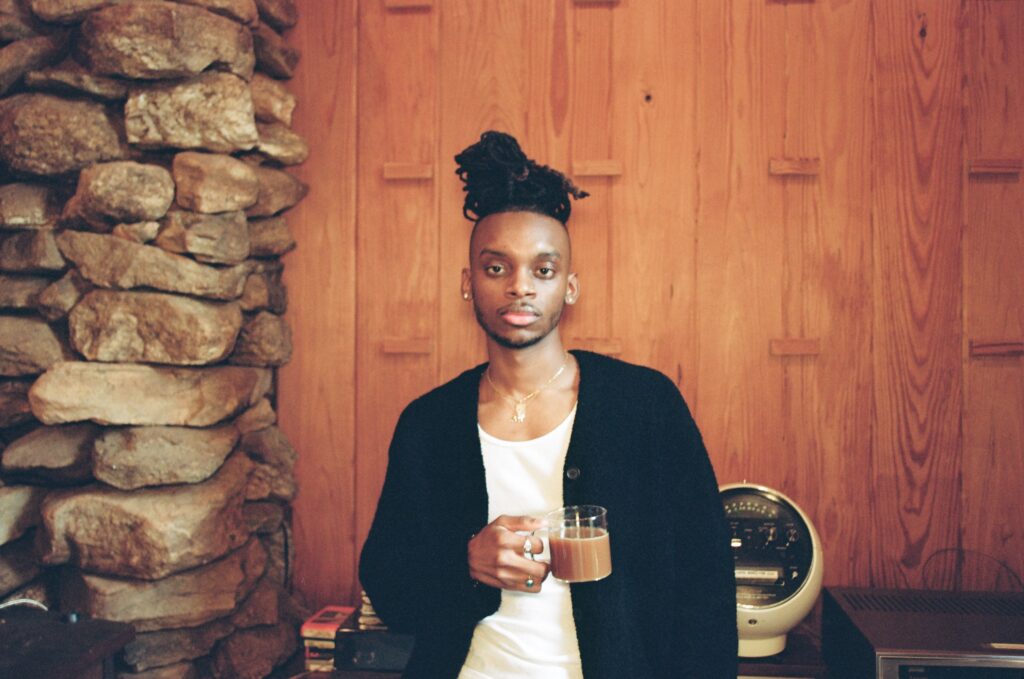
You recently had a song featured in a Viarae Wines commercial. What was it like working with Issa and her team?
She’s literally built an empire, and she’s continuing to do so. She has a great team of people that are able to execute her overall ethos and vision for Hoorae Media. I’m signed on the publishing side, and it made the process super easy because when you’re signed to a specific entity that’s putting something together, it streamlines everything.
The process was super easy, and it led to another opportunity to do partial scoring on a documentary. I didn’t even know what the commercial looked like until the day it came out. I was like, “Oh, I see why you picked the song.” It’s very dreamy and it goes well with the visual story that they were trying to tell. So I’m grateful that they picked the song, it made a lot of sense why they did. Even if it wasn’t me, just from a musical standpoint.
You said there is also a documentary coming out that you did some scoring for. Do you have an interest in ever doing that on the side or for fun?
That’s definitely something I want to get more into. I want to do it for fun, but I also want to do it because I have a love for arrangement and composition as a whole. That’s how I make my music. I think about it in a way that’s not just making beats, you know, it’s like actual production. In the way that Quincy Jones would, getting back to the essence of real production. That’s why I feel like it made sense for that ad, because it felt like a scoring moment.
That’s how I’m starting to approach music now. I want to make it much more dynamic and expressive, in a way you could hear it outside of passive listening, even intentional listening – you could see it used for something visual.
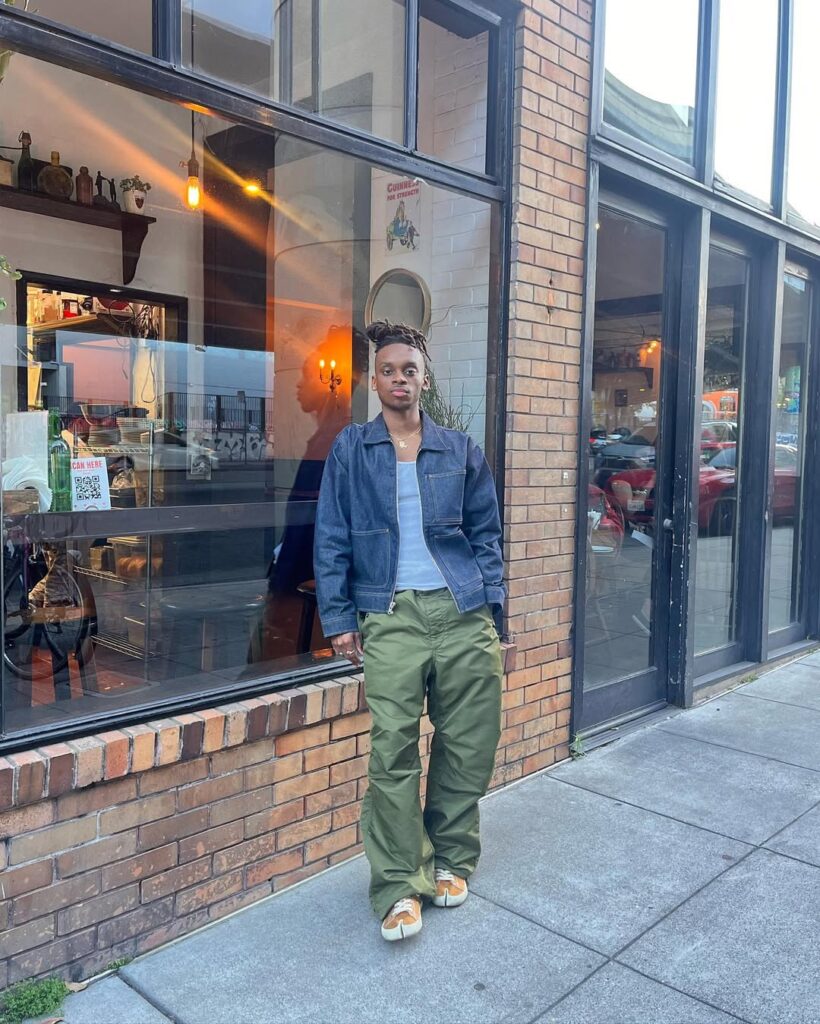
With Café Noir, you said you wanted it to be this sonic thing that manifested into a physical space. So it makes sense that you enjoy scoring, because you’re taking your music and creating a visual world with it.
It’s a whole world – it’s never just music. Even when I’m creating my own solo work. I’m figuring out a mood board before I even make the music, because those worlds coincide in my mind. People wouldn’t know that because I haven’t put out very many visuals, but this next project, I’m adding in those other sensory elements, so people can get the whole scope of what it is. The musical message I’m trying to convey.
Each project that I put out has a story and it’s super conceptual. Whatever album cycle I’m in is kind of a reflection of where I’m at in my life and creatively. I think that’s the beauty of making music. You evolve as a person and the music evolves along with you. You have an opportunity to create a unique experience for each world that you’re trying to build.
Café Noir is a reflection of one part of the piece that we wanted to give our audience. You don’t want to give everything of yourself. You want to limit access in some ways. But this is a tidbit of our personality and the things that we enjoy within our personal lives, which coincides with our music. So here, we have this thing that we want to share with you, do with it what you will.
Tell me more about your Soulection takeover. It was so good, I listened to it multiple times. I would love to hear more about that.
Honestly, that came together so seamlessly and so effortlessly. Me and Joe have gotten a lot tighter with our relationship. September came around for New York Fashion week and Joe was like, “I’ll be in town.” He really made a conscious effort to make sure that it got done, to bring it to life. We did it here at Botani.
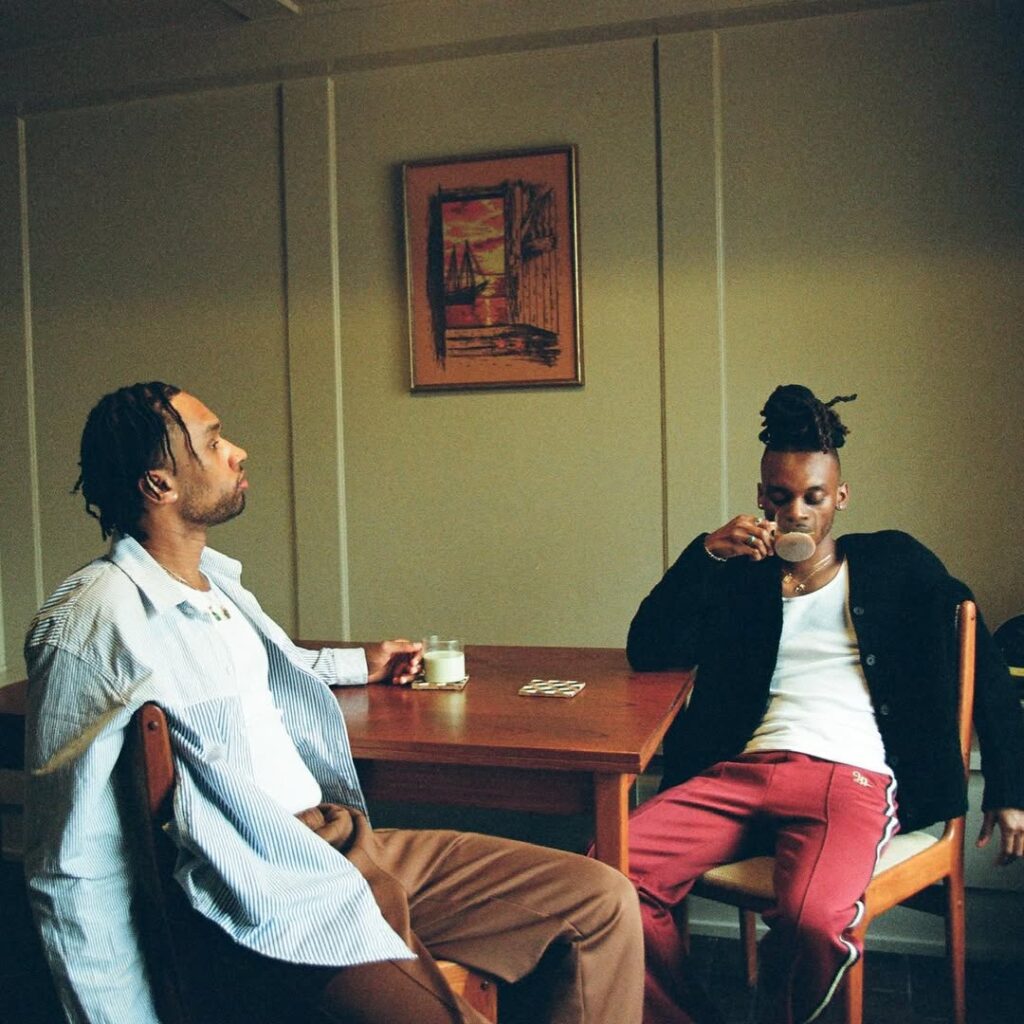
It was kind of last minute in a way, because a lot of things I work on are super calculated and it takes months to put together. But the takeover was super seamless and I’m grateful he reached out. It was a full circle moment in a lot of different ways. I grew up listening to Soulection – I started listening when I was like 16 and doing homework. From him spinning edits and some of them going viral on Instagram or TikTok, to him coming across our original music and tapping in, to me being in one of his cribs in Joshua Tree to him to saying, “Yo, you want to do a takeover?”
The deeper you get in your career, you reach certain heights and moments that may or may not have mattered to you when you were younger, and sometimes it’s really easy to get jaded in this space. But this one was really special because it happened when it needed to, and it was so effortless. I’ve done a really good job recently of not questioning things in terms of timing, because it’s so easy to when your contemporaries get certain looks and opportunities, and you’re like, “Damn, why isn’t that happening for me?” But literally comparison is the thief of joy. So I was just like, all right, whenever this happens, it’ll happen.
That’s such a good perspective.
What I’m learning is, an opportunity may not come to you because it may be too premature in that moment. It’s either that, or you may not be ready for it, you know? And I was more than prepared and ready for it at this time, and I feel like I’m in a really good space creatively. I don’t DJ, that’s not my main thing, it’s just an extension of what I do. But I have a really heightened level of respect for the craft. I’m glad he asked me to do it when he did, because I feel like I’m much better with how I’m DJing, in terms of the technical aspect of it. It happened exactly how it should happen when it needed to.
I invited a few homies to share that moment with them. It was really cool. It was funny to see so many people once it came out, they were like, “It’s about time.” I was like, “Hey, y’all have that dialogue amongst each other, but I’m gonna chill.” I’m just grateful for the look and opportunity and to just keep going.
This interview has been condensed for clarity.

